



As per the mandate given by the University Grants Commission via letter D.O.F. No. 1-4/2021 (QIP) dated 18th November 2021, the Vice-Chancellor approved the establishment of an NEP Cell.
The NEP (National Education Policy) Cell of the university has been established to guide, coordinate, and monitor the effective implementation of NEP 2020 across all academic, administrative, and outreach activities. It aims to ensure that the university’s curriculum, teaching methodologies, assessment patterns, and governance structures are aligned with the vision and objectives of NEP 2020.
Uttaranchal University fully integrates the National Higher Education Qualification Framework (NHEQF) by mapping curricula, engaging stakeholders, and ensuring quality assurance. Through faculty development and transparent communication, we continually refine our programmes to align with national standards, fostering academic excellence and preparing graduates for diverse professional landscapes.

Boards of Studies conducted in the schools. University-level discussions on curricular reforms in tune with the vision of NEP-2020

Meetings with stakeholders for review and progress. Introducing Outcome-based curriculum focusing on key aspects of NEP

Incorporating Indian classical texts such as the Bhagavad Gita, Kautilya’s Arthashastra, Charaka Samhita, and Patanjali's Yoga Sutras to explore India’s rich traditions.
As part of the implementation of NEP 2020, the University has adopted the UGC Curriculum and Credit Framework for Undergraduate Programmes, applicable prospectively from the academic year 2023-24.
Restructuring the programmes with renewed focus on global competency
Integrating Co-curricular and extra-curricular with curricular in all disciplines and programmes
Integrating Value and Skill-based courses in the curriculum of each programme of study
Community-based courses and projects
At our University, the Choice Based Credit System (CBCS) has been seamlessly integrated to empower students with flexibility and autonomy in their academic pursuits.
Office Order - Implementation of Choice Based Credit System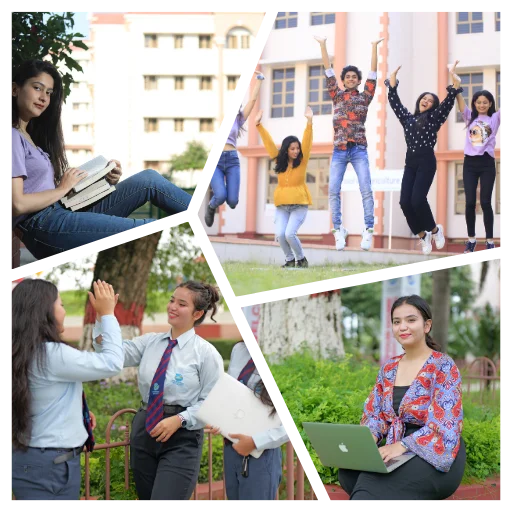
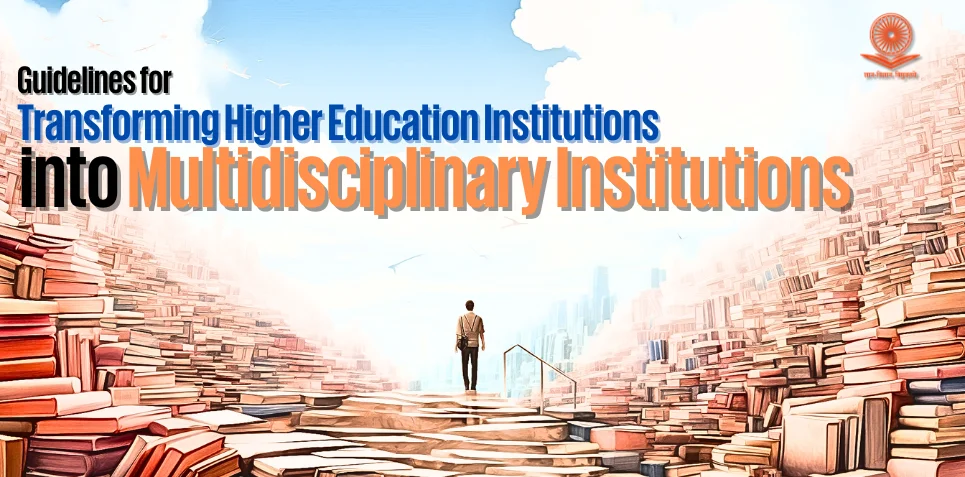
Embracing curricular reforms through holistic, multidisciplinary education, open electives, and research promotion—fostering innovation via IPR, cross-disciplinary Ph.D.s, and quality-focused research culture.
The University is already registered on the ABC (Academic Bank of Credits) portal to facilitate credit mobility for students from Academic Year (AY) 2022-2023 onwards.
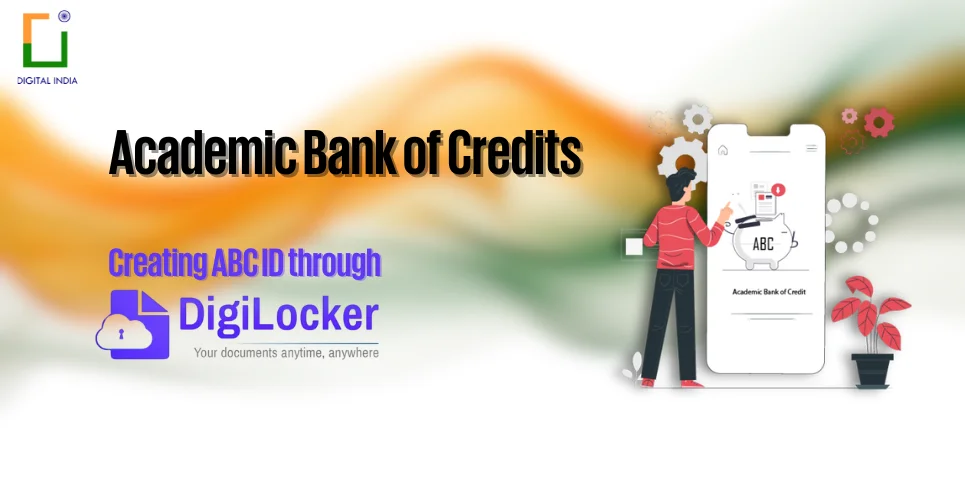
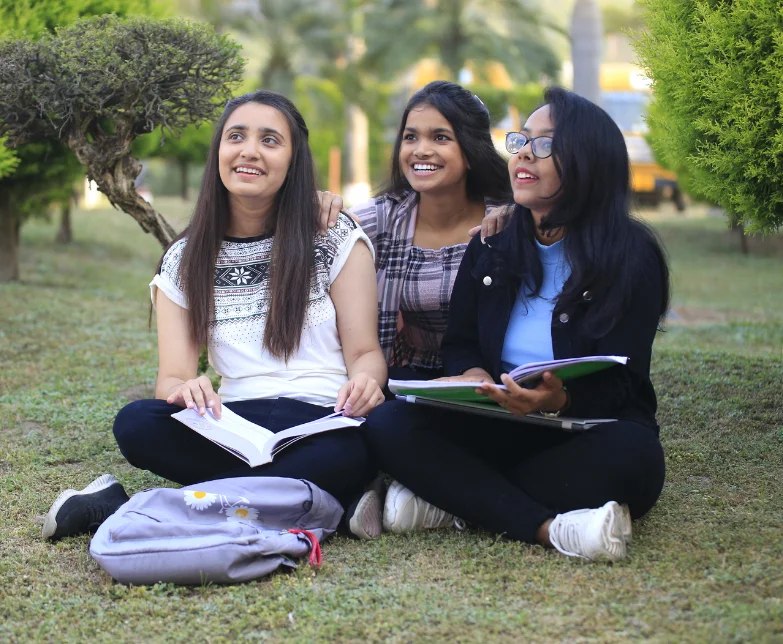
.webp)
The IQAC of the University has developed a Strategic Plan of Action, outlining key objectives and initiatives to enhance academic quality and institutional effectiveness.
Fostering quality teaching, innovative research, and holistic student development through interdisciplinary, inclusive, and future-ready academic practices.

Upgrading digital classrooms, research labs, and green campus facilities to enhance learning, innovation, and sustainability outcomes.


Supporting continuous professional development, research collaboration, and leadership opportunities to nurture an inspired academic workforce.

Building strong partnerships with local stakeholders for inclusive growth, social impact, and sustainable regional development initiatives.
The university reaffirms its commitment to social justice, diversity, and inclusion, aligning with national policies and global sustainable development goals. The SEDG Cell not only supports academic success but also empowers individuals to contribute meaningfully to society, thereby fostering a more compassionate and equitable future.
Office Order - Committee for SEDGs
Our university’s Indian Knowledge Systems (IKS) Center, established under the guidelines of the IKS Division of the Ministry of Education, embodies the vision of preserving, promoting, and applying India’s traditional knowledge in modern contexts. Rooted in the principles of Paramparā, Dṛṣṭi, and Laukika-prayojana, the center fosters interdisciplinary research, documentation, and outreach that bridge classical Indian wisdom with contemporary challenges. Through student internships, faculty workshops, community engagement, and contributions to the IKS Wiki portal, the center nurtures a vibrant ecosystem for Bhāratīya knowledge. It strives not only to study past ācāryas but to inspire future innovators shaped by India’s profound intellectual traditions.
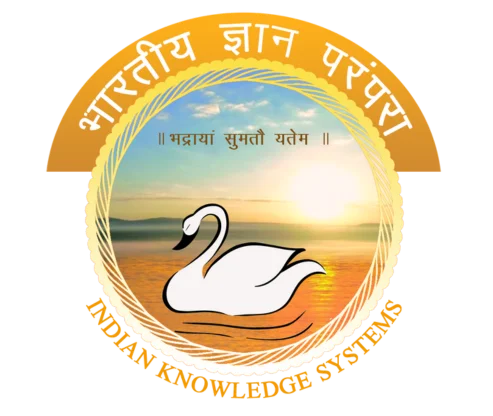







The university offers diverse Indian Knowledge System (IKS) courses, reflecting traditional wisdom. Enrollment statistics highlight growing student interest in heritage-based education and interdisciplinary cultural knowledge.
Student Enrolled in IKS Course-Diploma
Student Enrolled in IKS Course-Undergraduate
Student Enrolled in IKS Course-Post Graduate
Courses Releated to IKS in the University
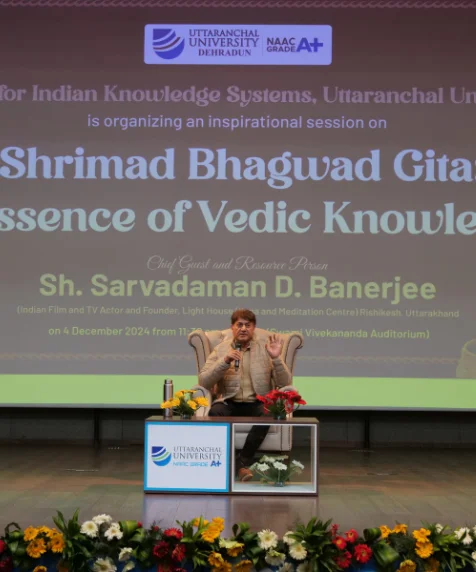
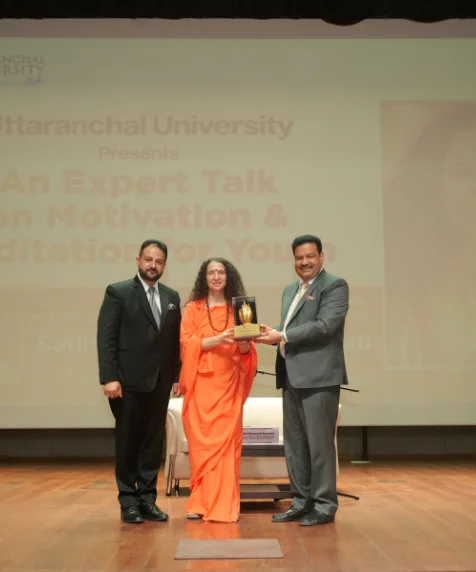
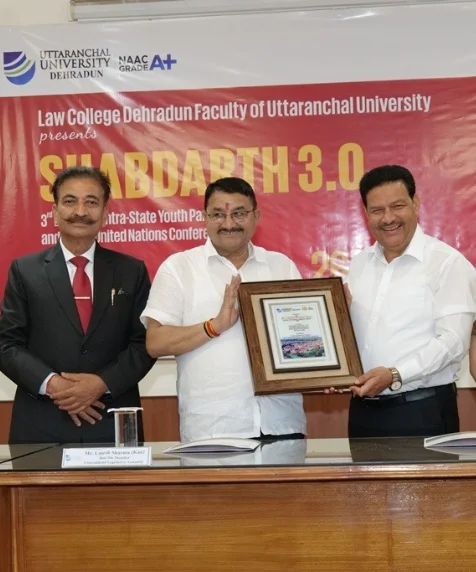
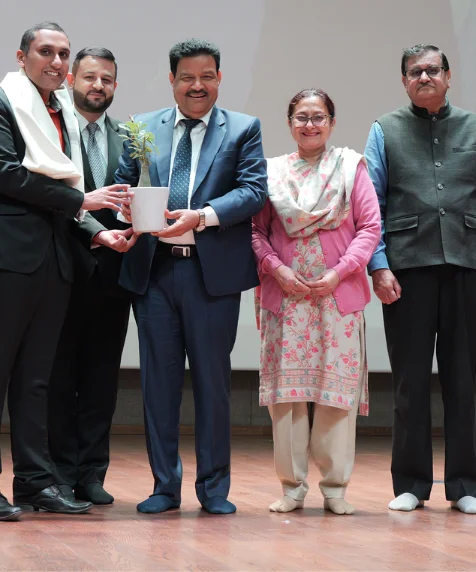


The University provides internship opportunities to students through its Corporate Resource Center, enabling them to gain practical experience and industry exposure to complement their academic learning.
Component of internship in the Undergraduate curriculum. Community-based projects and internships. Opportunities for internships and projects with local industry. Improving students’ employability by providing internships with local industry, businesses, artists, and crafts persons etc.


The University provides internship opportunities to students through its Corporate Resource Center, enabling them to gain practical experience and industry exposure to complement their academic learning.
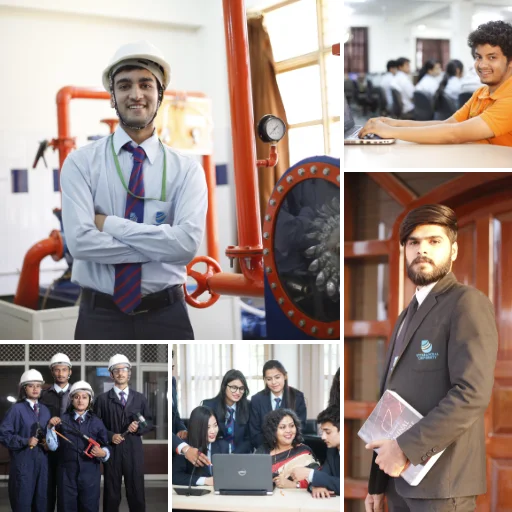




Through targeted initiatives, we aim to provide continuous professional development opportunities, personalized mentorship programs, and recognition schemes to empower our educators and administrators.
The valedictory session of FIP GURU-DAKSHTA 2024 concluded successfully on 23 July 2024. A total number of 33 newly appointed faculty of Uttaranchal University have attended the programme.
Guru Dakshata – Faculty Induction & Orientation Program – 2025 was conducted from 10 to 17 February 2025, at the SLA Seminar Hall, organized by HRDC in collaboration with the Office of the Dean Student Welfare for newly appointed faculty members of Uttaranchal University.

Through partnerships, research funding, innovation, and local cultural promotion, Uttaranchal University empowers faculty and students to drive impactful research and international collaboration



